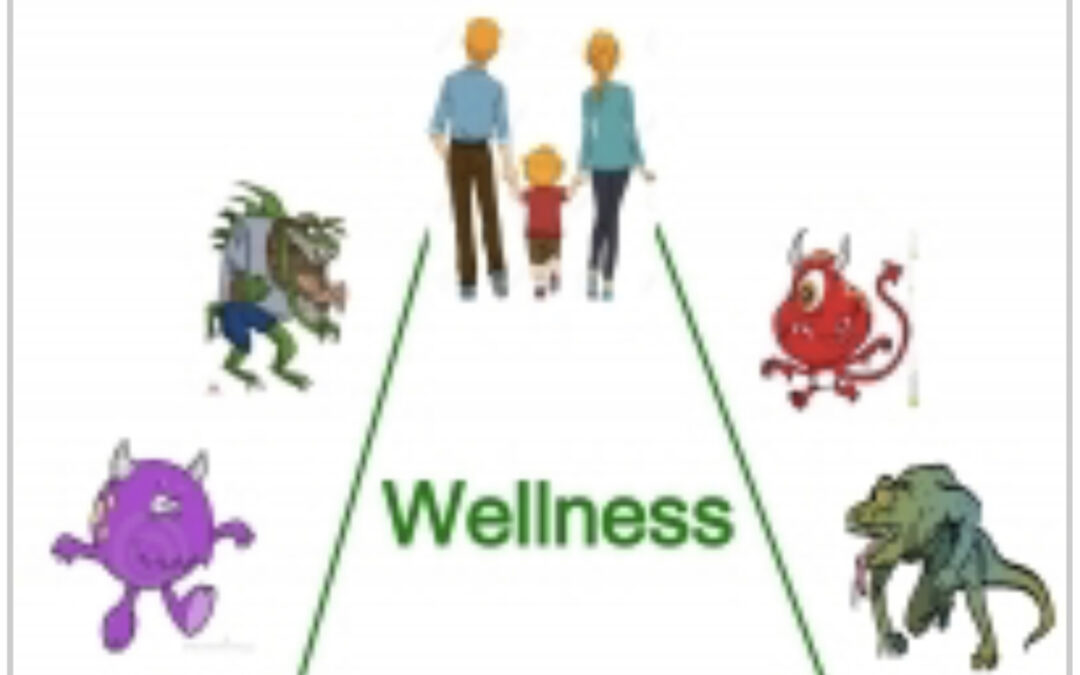As we head into “colds and flu season”, it is important that we take time to prepare. We are constantly exposed to all kinds of nasty germs. We must make sure we are fully armed in the battle for good health- whether it is the winter season or not.
In researching for our Wellness Workshop, I read a number of articles on boosting one’s immune system. A Harvard Health Publication recommends some simple and basic things:
• Healthy Diet
• Regular Exercise
• Adequate sleep
• Decreasing stress
• Do not smoke.
• If consuming alcohol – minimal consumption.
• Avoiding infection through hand washing
Pretty common sense! Yet so many of us succumb to illness each winter. In our next “In Good Health” article, I will discuss healthy diet and foods that we may consume to improve our immune response. That’s a big topic that deserves its’ own article. Let’s talk about the other things on the list. The second area listed by Harvard Health, “regular exercise”, is important because physical activity may help flush bacteria out of the lungs and airways. It can cause changes in antibodies and white blood cells. A study of 1000 adults published in the British Journal of Sports Medicine demonstrated that the group who exercised 5 or more times per week experienced 43% less sick days than the group who exercised one day or less per week. Also, when the first group did get cold symptoms, they were rated as significantly less severe. Exercise appears to reduce upper respiratory tract infection incidence by 18-67%, according to the study. Regular exercise also lowers stress hormone levels, and higher stress hormones levels are linked to lowered immune response.
Sleep deprivation suppresses immune system function. During sleep, your immune system releases proteins called cytokines. These are needed when you have an infection or inflammation, or when you are under stress. Inadequate sleep may decrease production of these proteins and reduce the body’s ability to fight illness.
As already stated, hormones created in the body during times of stress will reduce the ability of the immune system to function, so if fighting sickness is our goal, we must examine the stress we experience in our daily lives. Smoking has also been demonstrated to hinder the immune response, as has excessive consumption of alcohol.
Which leaves us avoiding infection through regular hand washing. Minimizing the spread of germs is certainly important. However, we will never live in a vacuum where germs don’t exist. Louis Pasteur, who developed the germ theory, was later to remark that it is not the seed but the soil that determine the virulence of an illness. That is to say that the condition of the person is of much more importance than the strength of the germ to which they are exposed.
We see this in our lives today. A “flu bug” may pass through a classroom or office and some will get sick and some will not. What is the difference, if the germ that they face is the same one? The immune system is controlled by the central nervous system.
Chiropractic adjustments help to regulate the autonomic nervous system. The nervous system communicates with endocrine and immune tissue to modulate chemical reactions that keep you healthy. Researchers in New York found that people under chiropractic care for more than five years demonstrated 200% greater immune function that those who had not. One very interesting study measured a 48% increase in CD4 cells in HIV patients over a six-month period, compared to an 8% decrease in the control group over the same period of time. CD4 cells are important immunoglobulins that play a critical role in HIV and AIDS. Similarly, an enhancement in white blood cells has been measured with chiropractic care. Patricia Brennan, PH.D., found improved immune response in her test subjects following chiropractic treatment. The study specifically demonstrated the “phagocytic respiratory burst of polymorphonuclear neutrophils (PMN) and monocytes were enhanced in adults that had been adjusted by chiropractors.”
There is so much information out there regarding the effects on the immune system of children specifically. There have been multiple case studies presented investigating the positive effect of chiropractic care on ear infections, tonsillitis, colds, asthma, and common childhood illnesses. Kids are exposed to lots of germs in the classroom environment, so it is important that they are under regular care to stay healthy.
I sometimes get calls from patients that are experiencing cold symptoms, asking if they should still come in for their appointment. The answer is always “ABSOLUTELY!!!” Having an entrainment will prime your nervous system to fight the cold more efficiently, provide some relief and get you through faster. If you’re worried about “passing it on”, we use a hospital grade cleaner on our chiropractic beds, and will clean yours immediately after your appointment if you let us know you may be contagious.
So as we face “colds and flu season”, it is important to make sure that our bodies are “tuned up” to maximum efficiency. Dr. Donald Epstein, the developer of Network Spinal Analysis, describes how NSA “upgrades the central processing unit that is our Nervous System”. Instead of operating an outdated “Commodore Computer” using floppy discs, we can train our nervous system to function like a “high speed” state of the art computer, maximizing the potential of the human condition.
Make sure you get assessed with Network Spinal Analysis regularly. It will help reduce stress in the body and improve the efficiency of your nervous system and immune function.

